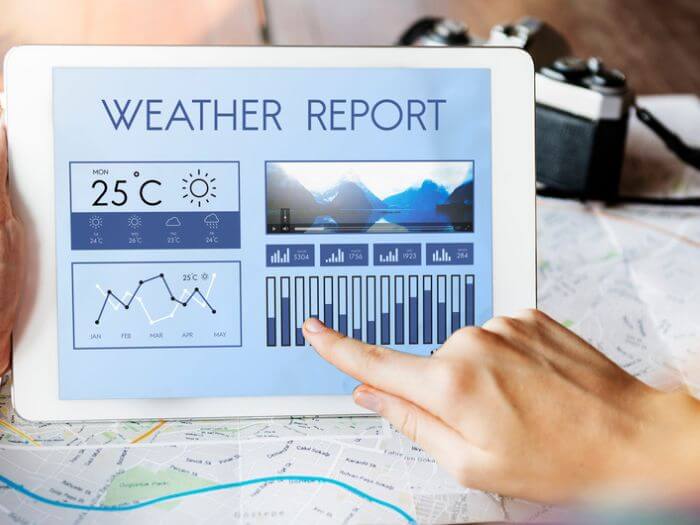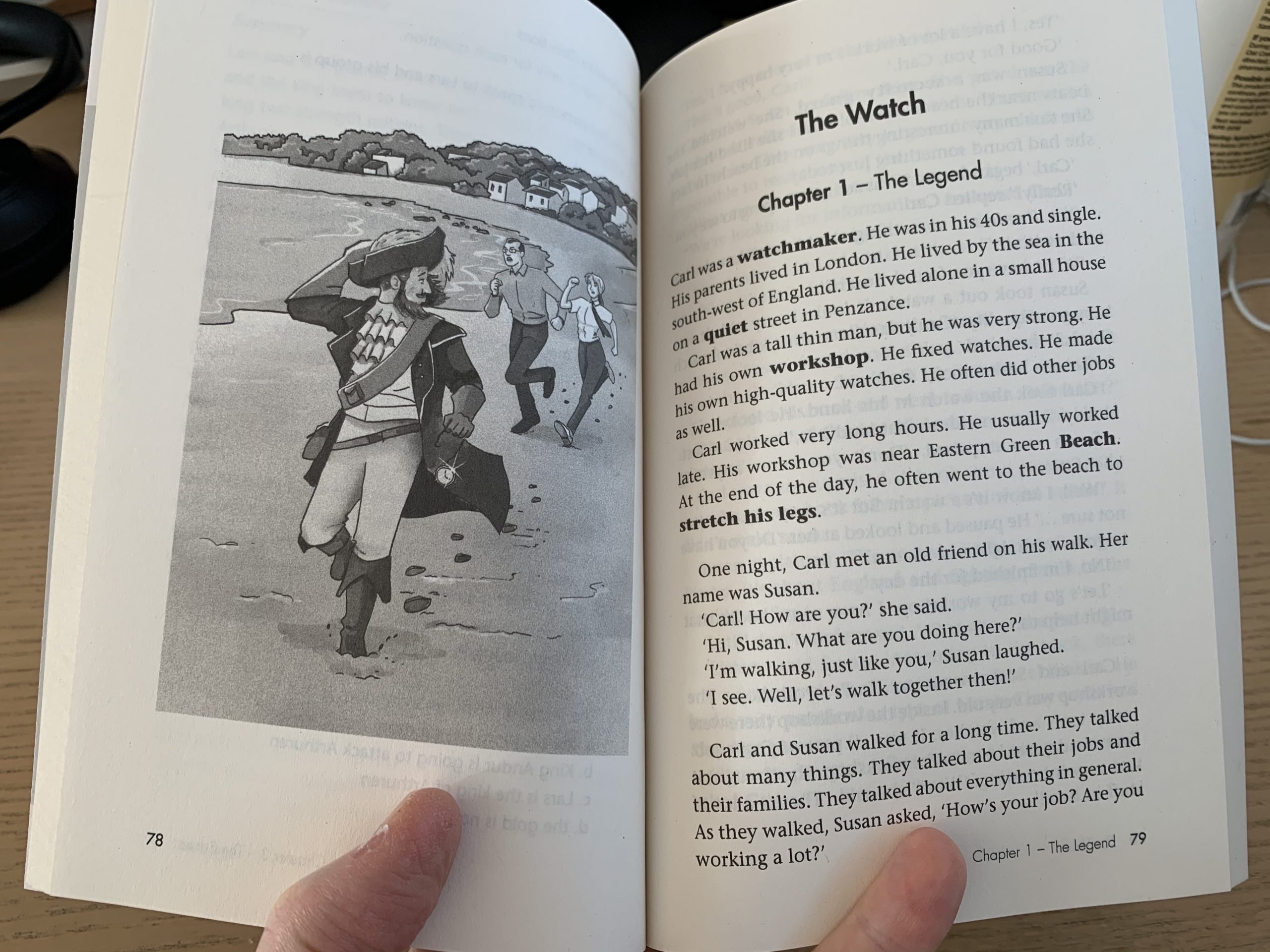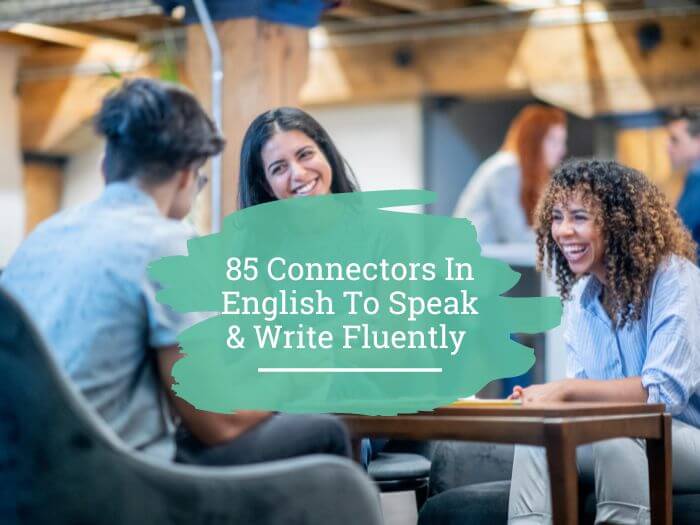When you speak and write, you express ideas.
Many ideas.
And if you want people to understand your ideas, you need to express them clearly.
Not only that.
You also need to connect them together and show how they are related to each other.
This is why you need connectors in English.
These are words and phrases that are used to link different parts of a sentence or different sentences together to show the relationship between them.
And in this post, you're going to learn over 80 different connectors in English!
Table of Contents
What Are Connectors In English?

Here’s a simple example.
I ate a sandwich because I was feeling hungry.
2 ideas:
- eating a sandwich
- feeling hungry
How are they related?
The word “because” (a connector) links them together by showing their relationship.
One idea is the cause (feeling hungry), the other idea is the consequence (eating a sandwich).
Connectors in English are an essential part of the English language and in this blog post you will explore different types of connectors and look at a lot of examples of how they’re used.
Let’s go!
Types Of Connectors In English
There are many different types of connectors in English.
These include:
- Cause, effect, and result
- Sequence
- Time
- Addition
- Contrast
- Condition
- Example
- Comparison
- Summary
Let’s learn more about each type.
Connectors Of Cause, Effect, And Result
Connectors of cause, effect, and result show the relationship between events or actions.
Some examples:

1. Because
- I couldn't come to the party because I had to work late.
2. Since
- Since our return flight to Milan was cancelled, we had to spend one more day in Paris.
3. As A Result
- She studied hard and, as a result, she got an A on the test.
4. Consequently
- Many people today do not have time to cook healthy meals for themselves. Consequently, they often end up eating too much junk food.
5. Therefore
- Learning a language requires practice. Therefore, it’s important to find as many practice opportunities as you can.
6. Hence (Formal)
- Language learning can be more effective when you know what you want to achieve. Hence it is important to be clear about your language learning goals.
7. So
- She woke up late, so she missed her flight.
8. On Account Of
- All public transport services were cancelled on account of the strike.
9. Owing To (Formal)
- He remained sick owing to poorly prepared food.
10. Thanks To
- I was able to learn English thanks to the help of a great teacher.
11. As A Consequence
- Many businesses had to shut down during the pandemic. As a consequence, economic growth slowed down.
12. Due To
- Many businesses had to shut down due to the pandemic.
13. For This Reason
- He hates politicians. For this reason, he has never voted.
14. Thus (Formal)
- We do not own the company. Thus, it would be impossible for us to sell it to investors.
Connectors Of Sequence
Connectors of sequence are words or phrases that help to show the order or sequence of events or actions.
They indicate the temporal relationship between ideas, actions, or events in a sentence or paragraph.
Here are some common ones. They’re all used to indicate something that happened after something else.

15. After That
- First, I'll explain the basic rules of the game. After that, we'll start playing.
16. Next
- Boil the water. Next, put the pasta in it.
17. Then
- I went to the supermarket. Then, I came home and had lunch.
18. Afterwards
- We can first relax and have some coffee. Afterwards, we’ll go back to work.
19. Subsequently (Formal)
- The company experienced financial difficulties. Subsequently, they had to make several employees redundant and shut down some of their international headquarters.
20. Finally/Lastly
I’d like to thank my mother and all my family members. And finally, I would like to thank you all for coming here today.
21. Last But Not Least
You can use this when you’re mentioning the last person or thing of a group in order to say that they’re not less important than the others.
- Last but not least, I’d like to thank my partner for supporting and encouraging me. This achievement wouldn’t have been possible without her.
22. First / Second / Third
- This study has the following aims: first, to investigate how international students in the UK learn English; second, to examine how well they can communicate; and third, to explore how language classes can play a role in helping overseas students adjust to life in England.
Connectors Of Time
Connectors of time are similar to connectors of sequence. They are used to show the order or sequence of events.
Some examples of connectors of time include:

23. After
- After finishing work, he usually goes to the gym and spends two hours there.
24. Before
- Before going to bed, I always brush my teeth.
25. Meanwhile
You use this to indicate that something is happening while something else is happening.
- John was working on his project. Meanwhile, I was cooking dinner.
26. As
This indicates that something is happening while something else is happening.
- As I was walking to the store, I saw my friend driving by.
27. As Soon As
A nice little phrase that you can use to indicate that one action happens immediately after another.
- I'll call you as soon as I arrive at the airport.
28. Once (=As Soon As; When)
- Once I finish my homework, I can go out and play with my friends.
29. While
You use “while” to indicate that two actions are happening at the same time.
- I was eating while my dad was watching TV.
30. Since
“Since” is often used with the present perfect to indicate when the action started.
- I haven't seen her since 2018.
31. Until
- Please stay here and don’t leave the train station until the train arrives.
32. When
You can use “when” to describe a situation that happens at or during a particular time or while something else is happening.
- I saw a deer when I was walking in the park,
- The teacher was not ready when the lesson began.
33. In The Meantime
- The restaurant is fully booked at the moment so you’ll have to wait. In the meantime, you can take a seat outside and have some drinks if you like.
Connectors Of Addition
These connectors are used to add information or ideas.
Here they are:

34. And
- She's studying psychology in the morning and learning English in the evening.
35. As Well As
- She speaks Spanish as well as English.
36. Also
- I don’t like washing the dishes. I also hate doing the laundry!
37. Moreover (Formal)
- The cost of living is high in this city. Moreover, the traffic is terrible.
38. Furthermore (Formal)
- Research has shown that exposure to language input is essential in second-language acquisition. Furthermore, there is evidence to support the claim that exposure to comprehensible input should be consistent.
39. In Addition (Formal)
- We need to hire more employees. In addition, we need to improve our training program.
40. Besides
- There's nothing to do today. Besides, it's raining so we can’t even go outside.
41. Additionally
- She's a great teacher. Additionally, she's also a published author.
42. Too
- I like Italian food and I can make great pizza too.
43. Not Only…But Also…
- Not only can this course help you improve your speaking skills, but it’s also a great way to meet like-minded students.
44. What Is More
- Children who are bilingual outperform monolingual children on IQ tests. What is more, they appear to have an advantage in acquiring a third language.
45. Likewise (Formal)
- Her second child was likewise very smart.
Connectors Of Contrast
These are connectors that can be used to show contrast between ideas.

46. But
- I want to go to the party, but I have to finish my homework first.
47. However
- She loves ice cream. However, she's lactose intolerant.
48. Although
- Although it was raining, they still went to the beach.
49. Though
- I like going to the cinema. I prefer watching movies at home though.
50. Despite The Fact That
- John continued to smoke cigarettes despite the fact that he knew they were bad for his health.
51. In Spite Of (The Fact That)
- In spite of the fact that the restaurant had poor reviews, they decided to give it a try and ended up enjoying the food.
52. Whereas
- She likes sweet foods, whereas he prefers salty ones.
53. On The One Hand / On The Other Hand
- On the one hand, I would love to take that job offer because it pays well. On the other hand, it's in a city far away from where I live, so I’m not sure what to do.
54. While
- I love to read, while he loves to watch movies.
55. Even Though
Even though he had studied hard, he still failed the exam.
56. Even If (= Whether Or Not)
- Even if it rains, I'll still go for a run this evening.
57. On The Contrary
- ‘“It must have been great!”
- “On the contrary, I hated every minute.”
58. In Contrast
- The results of the survey show that, on average, women spend more time cooking for their families. In contrast, men spend more than five minutes a day preparing meals for their kids.
59. Yet
- He's incredibly busy, yet he still finds time to go to the gym.
60. Nevertheless
- There is little chance that they will win the cup. Nevertheless, it is important that they do their best to succeed.
61. Nonetheless (Formal)
- These are serious issues. Nonetheless, we have a solid plan to solve them.
62. Still
- The restaurant was dirty. Still, the food they serve is incredibly delicious.
Connectors Of Condition
These are words that are used to connect two clauses (a group of words that includes a subject and a verb, and forms a sentence or part of a sentence) to express a condition that must be fulfilled in order for something else to happen.
Here are some examples for you:

63. If
- If it rains, we'll stay at home.
For more on “if” check out this post on the English conditional tense.
64. Unless (=If Not)
- I won't forgive you unless you apologise
65. Provided That
- I'll lend you my car, provided that you promise to return it by tomorrow.
66. As/So Long As (=Only If)
- You can use my laptop as long as you don't break it.
67. Supposing (That)
Used to ask somebody to pretend that something is true or to imagine that something will happen.
- Supposing that you were stranded on a desert island and could only bring three things with you, what would they be?
68. On Condition That (=Only If)
- I can drive you to the station on condition that you pay for the petrol.
Connectors Of Example
These are words and phrases used to introduce examples

69. For Example
- There are many different fruits you can use for smoothies. For example, you can use berries, bananas, and mangoes.
70. Such As
- We sell many different types of vehicles, such as cars, trucks, and motorcycles.
71. Like
- Some people enjoy outdoor activities like hiking and camping, while others prefer indoor activities like reading and watching movies.
72. Including
There are many different types of pasta dishes, including spaghetti, fettuccine, and lasagna.
73. Namely
- There are many different types of computer programs, namely word processors, spreadsheets, and graphic design software.
74. For Instance
There are many ways to learn a language. For instance, you can try our StoryLearning method.
Connectors Of Comparison
Connectors of comparison are used to show the similarities and differences between two or more things.

75. Likewise (Formal) = In A Similar Way
- John is a great cook. Likewise, Mary is skilled in the kitchen.
76. Unlike
You use “unlike” to show difference / contrast.
- Unlike his brother, who is always punctual, Tom is always late for appointments.
77. By Comparison
You can use this to show a comparison between two or more things.
- The value of oil went up by 3 percent. By comparison, gold has fallen by 4 percent.
78. As…As
This structure is used to show similarity or equality between two things, actions, or qualities.
- The pizza I had last night was as delicious as the one I had in Italy.
79. Compared To
- Compared to New York, Milan might seem a small city.
80. Similarly
- She is an excellent swimmer. Similarly, her sister is a great swimmer too.
Connectors Of Summary
These are used to summarise or conclude a point or idea. Here are some examples:

81. In Conclusion
- In conclusion, the research shows that there is a clear correlation between exercise and mental health.
82. To Sum Up
- To sum up, it's clear that the new policy has had a positive impact on the company's profits.
83. All In All
- The event was well-organized and the speakers were engaging. All in all, it was a great success.
84. To Conclude
- To conclude, the evidence clearly supports the hypothesis that the climate is changing due to human activity.
85. On The Whole
- On the whole, I think the movie was pretty good, but the ending was disappointing.
Connectors In English FAQ
What are examples of connectors in English?
Connectors are words or phrases that link ideas in a sentence or between sentences. Common examples include and, but, because, however, therefore, and although.
What are the 4 types of connectors in English?
The four main types of connectors are: addition (e.g. also, furthermore), contrast (e.g. however, on the other hand), cause and effect (e.g. because, therefore), and sequence (e.g. first, finally).
What are the 10 examples of connectives in English?
Ten useful connectives in English are: and, but, so, because, although, therefore, however, meanwhile, in addition, and for example. These help make writing clearer and more organised.
What are the 10 logical connectors?
Ten common logical connectors are: therefore, because, however, although, since, thus, consequently, nevertheless, in contrast, and on the other hand. They show relationships such as cause, effect, or contrast between ideas.
Connectors In English Everywhere

As you can see, connectors in English are useful words and phrases that will help you show the relationship between ideas.
We have only seen connectors to link ideas within sentences, but they can also be used to connect ideas across paragraphs.
This is why it’s important to read books in English if you’d like to learn and notice connectors in English in context as you’ll be exposing yourself to a lot of written texts–which are rich in connectors!
Following the rules of StoryLearning can help you do this as you’ll be reading short stories in English and you’ll be exposing your brain to thousands of sentences, ideas, and connectors too!

Olly Richards
Creator of the StoryLearning® Method
Olly Richards is a renowned polyglot and language learning expert with over 15 years of experience teaching millions through his innovative StoryLearning® method. He is the creator of StoryLearning, one of the world's largest language learning blogs with 500,000+ monthly readers.
Olly has authored 30+ language learning books and courses, including the bestselling "Short Stories" series published by Teach Yourself.
When not developing new teaching methods, Richards practices what he preaches—he speaks 8 languages fluently and continues learning new ones through his own methodology.










































